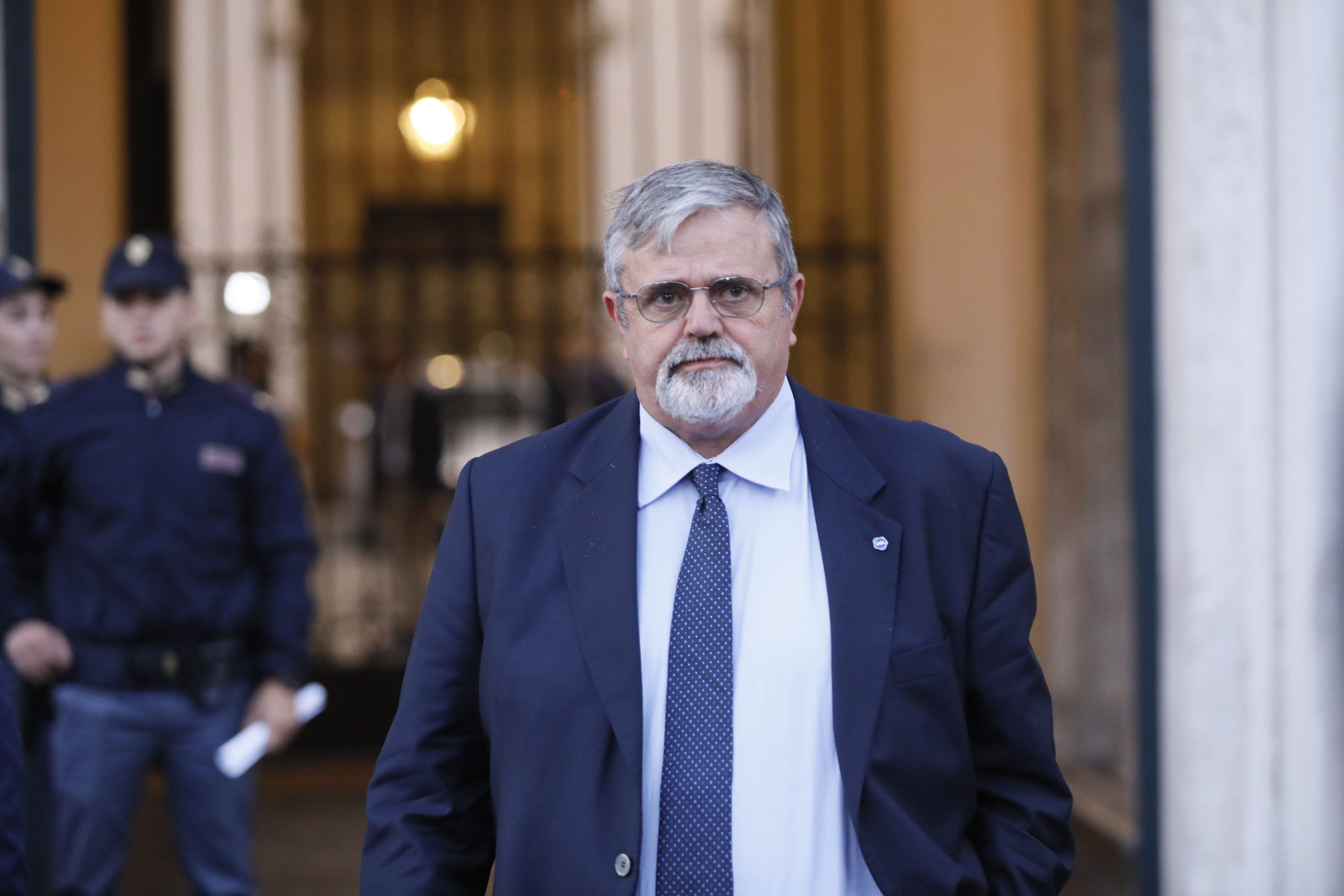IL CESE E L’UNIONE DELLE COMPETENZE
L’Europa ha bisogno di un’Unione delle competenze ambiziosa, inclusiva ed orientata al futuro, che sostenga i datori di lavoro, incoraggi la creazione di posti di lavoro di qualità e rafforzi il tessuto sociale ed economico dell’Unione Europea. È stato questo l’oggetto del Parere adottato dal Comitato Economico e Sociale Europeo (CESE) nella Sessione Plenaria di metà Luglio, sull’iniziativa “Unione delle competenze” della Commissione Europea, in cui si chiede una strategia coraggiosa e ben finanziata per dotare la forza lavoro europea delle competenze necessarie per le transizioni verde e digitale, la competitività globale e la coesione sociale. Il CESE evidenzia l’importanza strategica di un’istruzione di alta qualità e di risorse umane qualificate, per un’Europa competitiva, inclusiva e pronta a guardare al futuro. Al fine di affrontare le sfide attuali, quali le persistenti mancanze di competenze con i relativi squilibri tra domanda ed offerta e le carenze di manodopera in settori strategici, nonché per attrarre insegnanti e formatori, occorrono però riforme innovative oltre che investimenti in istruzione e formazione di elevata qualità. La realizzazione di un’Unione di competenze è dunque alquanto ambiziosa ed il suo successo dipende da una governance efficace e cooperativa, da finanziamenti adeguati e da una rappresentanza inclusiva delle Parti sociali, delle autorità nazionali e di altri portatori di interessi, tra i quali le organizzazioni della società civile, gli insegnanti e gli studenti. Il CESE invita quindi la Commissione e gli Stati membri a garantire maggiori investimenti pubblici ed un miglior utilizzo dei fondi Ue per rafforzare i sistemi di istruzione a tutti i livelli, perché investire nelle competenze non è un’opzione, bensì un imperativo sociale fondamentale per la crescita economica, e non solo, degli europei. Per il Consigliere Ulgiati “l’Unione delle competenze deve allinearsi allo spazio europeo dell’istruzione e fondarsi sui principi del Pilastro europeo dei diritti sociali, allo scopo di garantire che ogni persona abbia diritto ed accesso ad un’istruzione inclusiva, di ottima qualità ed a qualifiche formali, indipendentemente dalla residenza in zone urbane o rurali, perché soltanto investendo nelle persone e promuovendo una cultura dell’apprendimento permanente la Ue può costruire un’Unione più competitiva, coesa e resiliente”.
UE-USA: UN ACCORDO SOLO POLITICO SUI DAZI
L’intesa sui dazi raggiunta tra la Ue e gli Usa è solo politica e non è giuridicamente vincolante. Questa, la precisazione della Commissione Ue nelle Dichiarazioni finali dell’accordo che presenta, nelle due versioni, molti dubbi e differenze importanti. Così, a pochi giorni dalla stretta di mano tra Donald Trump ed Ursula von der Leyen per l’accordo sui dazi, emergono già le prime notevoli divergenze che coinvolgono diverse voci della bilancia commerciale tra i due Continenti e precisi settori di beni e prodotti. Casa Bianca e Commissione Europea offrono differenti spiegazioni dell’accordo annunciato il 27 Luglio a Turnberry, in Scozia, concepito per dare certezza ad operatori, mercati ed economia, ma che sta generando, invece, molte perplessità ed incertezze, a cominciare dalle armi. Trump aveva specificato che, come conseguenza dell’accordo, l’Europa avrebbe investito centinaia di miliardi di euro in armamenti made in Usa, oltre a quelli in energia tramite importazioni di gnl e petrolio, ma la versione è stata respinta da fonti della Commissione Ue. Diverse interpretazioni anche su agroalimentare, semiconduttori, prodotti farmaceutici ed acciaio, settore quest’ultimo per il quale la Ue afferma la riduzione delle attuali imposte del 50%, mentre gli Usa sostengono che le tariffe settoriali su acciaio, alluminio e rame rimarranno invariate, con la Ue che continuerà a pagare il 50%. Visioni contrastanti, dunque, che sembrano gettare ombre oscure sulla solidità ed affidabilità della partnership. Intanto, dal 1° Agosto scattano i dazi del 15% sulle merci Ue. Il resto dovrà essere chiarito in seguito, anche se per gli Americani il negoziato è chiuso, mentre per gli Europei prosegue ancora.
EN
THE EESC AND THE SKILLS UNION
Europe needs an ambitious, inclusive and forward-looking Skills Union that supports employers, encourages the creation of quality jobs and strengthens the social and economic fabric of the European Union. This was the subject of the Opinion adopted by the European Economic and Social Committee (EESC) at its Plenary session in mid-July on the European Commission’s “Skills Union” initiative, which calls for a bold and well-funded strategy to equip the European workforce with the skills needed for the green and digital transitions, global competitiveness and social cohesion. The EESC highlights the strategic importance of high-quality education and skilled human resources for a competitive, inclusive Europe that is ready to look to the future. However, in order to address current challenges, such as persistent skills shortages with related imbalances between supply and demand and labour shortages in strategic sectors, as well as to attract teachers and trainers, innovative reforms are needed, as well as investment in high-quality education and training. The creation of a Skills Union is therefore highly ambitious and its success depends on effective and cooperative governance, adequate funding and inclusive representation of the social partners, national authorities and other stakeholders, including civil society organisations, teachers and students. The EESC therefore calls on the Commission and the Member States to ensure greater public investment and better use of EU funds to strengthen education systems at all levels, because investing in skills is not an option but a fundamental social imperative for the economic growth and well-being of Europeans. For Councillor Ulgiati, «the Skills Union must align itself with the European Education Area and be based on the principles of the European Pillar of Social Rights, in order to ensure that everyone has the right and access to inclusive, high-quality education and formal qualifications, regardless of whether they live in urban or rural areas, because only by investing in people and promoting a culture of lifelong learning can the EU build a more competitive, cohesive and resilient Union».
EU-USA: A SOLELY POLITICAL AGREEMENT ON TARIFFS
The agreement on tariffs reached between the EU and the USA is solely political and not legally binding. This clarification was provided by the EU Commission in the final Declarations of the agreement, which, in its two versions, raises many doubts and important differences. Thus, just a few days after Donald Trump and Ursula von der Leyen shook hands on the agreement on tariffs, the first significant differences are already emerging, involving various items in the trade balance between the two Continents and specific sectors of goods and products. The White House and the European Commission offer different explanations of the agreement announced on the 27th of July in Turnberry, Scotland, designed to provide certainty to operators, markets and the economy, but which is instead generating many concerns and uncertainties, starting with arms. Trump had specified that, as a result of the agreement, Europe would invest hundreds of billions of euros in US-made weapons, in addition to those in energy through imports of LNG and oil, but this version has been rejected by EU Commission sources. There are also different interpretations on agri-food, semiconductors, pharmaceuticals and steel, the latter being a sector for which the EU claims a 50% reduction in current taxes, while the US maintains that sectoral tariffs on steel, aluminium and copper will remain unchanged, with the EU continuing to pay 50%. Contrasting views, therefore, which seem to cast dark shadows over the solidity and reliability of the partnership. Meanwhile, 15% tariffs on EU goods will come into effect on the 1st of August. The rest will have to be clarified later, even if for the Americans the negotiations are closed, while for the Europeans they are still ongoing.
UGL NEWS dall'EUROPA n. 137 del 1° Agosto 2025EN - UGL NEWS from EUROPE n. 137 - 1st of Aufust 2025 -



